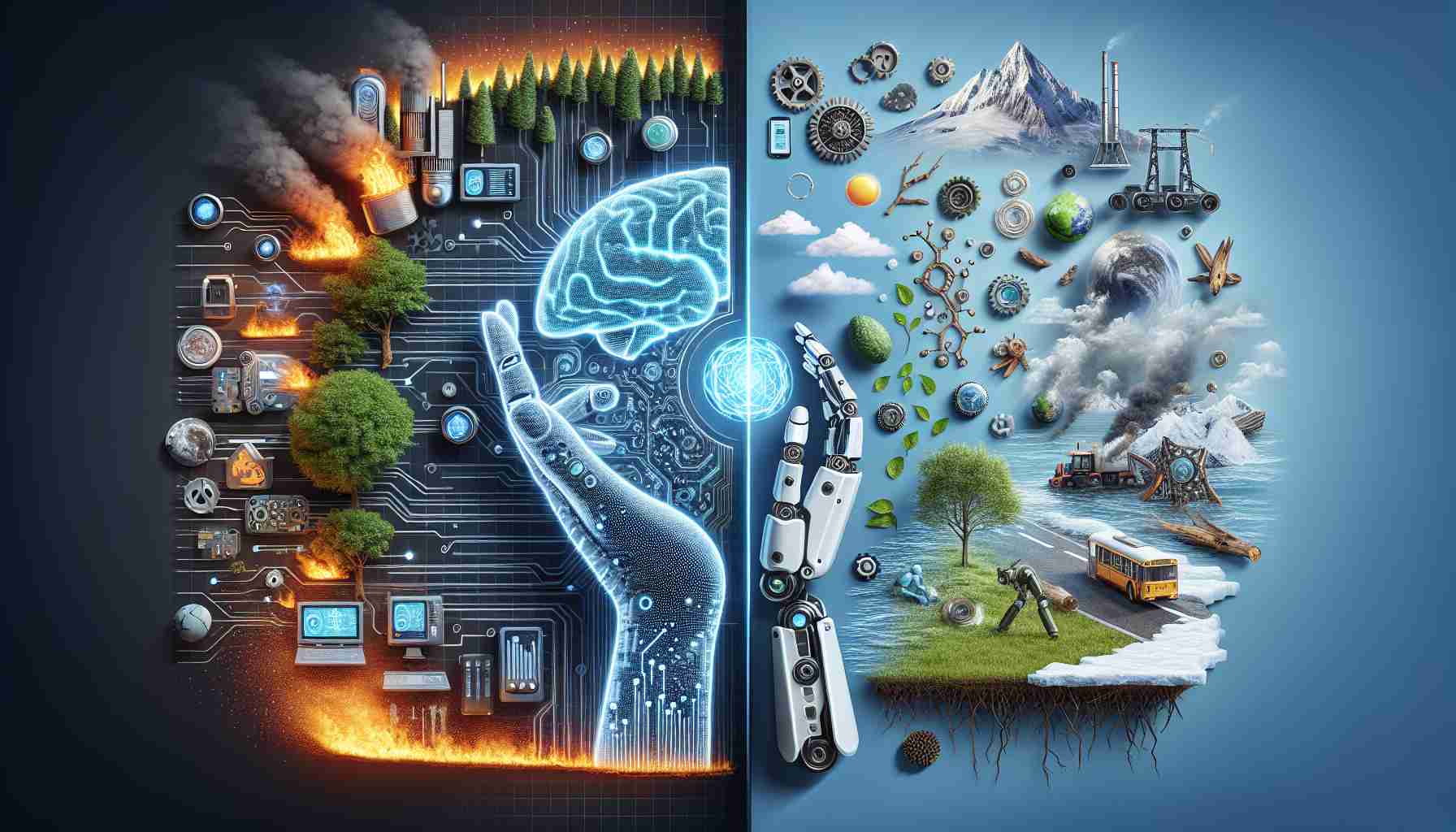In the ever-evolving landscape of technology, the recent conversations surrounding artificial intelligence (AI) have stirred significant debate, particularly in relation to climate challenges. The reliance on innovation cycles within the tech sector often leads to inflated promises and bold claims about AI’s potential, especially among influential figures.
During an AI-focused summit earlier this month, an important dialogue took place regarding the intersection of AI advancement and environmental sustainability. A central figure in this discussion, who has a history of promoting aggressive tech adoption within the military, expressed his views on the implications of AI for climate goals. He controversially suggested that achieving these environmental targets was unlikely regardless of AI involvement, thus shifting the responsibility away from the tech industry’s contribution to rising emissions.
This scenario poses a critical perspective: rather than focusing on reducing emissions, the argument was made to place trust in future AI innovations to mitigate the climate crisis. The comments highlighted a growing sentiment within Silicon Valley that technological solutions could ultimately outweigh the need for systemic changes in our approach to environmental issues.
This reflects a shifting narrative within the tech industry, where leaders seem to advocate for reliance on advanced technologies like AI, rather than adopting proactive measures to combat climate change. As the debate continues, it raises questions about the balance between technological ambition and environmental responsibility.
Innovative Strategies for Navigating Technology and Climate Challenges
In the face of the rapid evolution of technology, particularly within the realm of artificial intelligence (AI), it’s essential to explore practical tips and interesting facts that can aid in navigating the complexities surrounding climate change. Here are some valuable strategies that can help individuals as well as businesses align their tech usage with sustainable practices.
1. Embrace Sustainable Tech Solutions
As we delve deeper into an era dominated by AI and other advanced technologies, look for products and solutions that prioritize sustainability. Many tech companies are now focusing on creating energy-efficient devices and systems that not only reduce consumption but also contribute positively to the environment. Research various means of tech utilization that have low carbon footprints.
2. Incorporate AI into Energy Management
AI is revolutionizing energy management systems. Implement AI-driven solutions that optimize energy consumption in homes and businesses. Smart thermostats and AI power management systems can analyze usage patterns and adapt to reduce energy use effectively, leading to lower bills and reduced emissions.
3. Engage in Data-Driven Sustainability Efforts
Utilizing AI to analyze data can help organizations make informed decisions about their sustainability practices. Invest in AI tools that provide insights into resource use, waste management, and overall environmental impact, allowing for targeted improvements.
4. Shift Your Perspective on Innovation
Rather than waiting for future technologies to solve climate issues, actively participate in sustainability initiatives within your sphere of influence. Support policies and innovations that promote environmental responsibilities alongside technological advancements.
5. Foster Community Engagement
Engaging with local communities and tech groups can spearhead environmental initiatives. Collaboration often leads to more effective solutions and a stronger push for sustainable practices within the tech sector. Organize or attend forums that focus on the intersection of technology and climate action.
Interesting Facts to Consider
– A study found that data centers, which power AI and the internet, account for about 2% of global electricity usage, comparable to the airline industry’s total emissions. This highlights the urgency in optimizing such tech infrastructures for efficiency.
– AI has the potential to reduce greenhouse gas emissions by 4% by 2030, according to some forecasts, showcasing the need for proper integration of tech solutions and climate strategies.
By implementing these tips and embracing a more responsible approach to technology, individuals and businesses can significantly contribute to a greener future while still benefiting from the advancements AI and other technologies offer.
For more insights on technology and sustainability, visit Tech Times.
